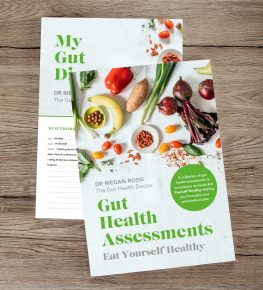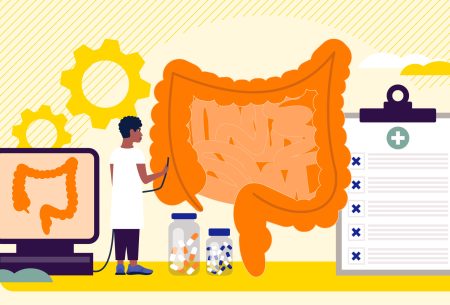There’s lots of talk about irritable bowel syndrome (IBS) in adults, but can children also have IBS?
The short answer is yes. However in paediatrics, the umbrella term of “functional gastrointestinal (GI) condition” is often used to describe these symptoms that are similar to what we might see in an adult with IBS.
What is a functional gut disorder such as IBS?
A functional gastrointestinal disorder (FGID) is when symptoms cannot be explained by structural or biochemical abnormalities.
Common FGID’s in paediatrics include toddler diarrhoea, functional constipation, functional abdominal pain, dyspepsia and IBS.
There are no diagnostic tests to confirm FGID / IBS in children, although some tests to exclude other conditions are carried out first. The diagnosis is made using the Rome IV criteria; which is essentially a set of statements agreed by world experts.
The low FODMAP Diet
You might have heard of the low FODMAP diet for the management of IBS in adults.
FODMAP stands for:
Fermentable
Oligo-saccharides
Di-saccharides
Mono-saccharides
and
Polyols.
These are a group of short-chain carbohydrates (sugars) that are poorly absorbed in the small intestine and readily fermented by the bacteria in the large intestine. This triggers symptoms in the hypersensitive gut, such as abdominal pain, reflux, bloating, constipation and/or diarrhoea.
The low FODMAP diet is a 3-stage diet that aims to identify IBS trigger foods and find a balance between symptom control and nutritional intake. Note that not all IBS symptoms are sensitive to FODMAPs. Approximately 25% of adults with IBS will need to consider other treatment therapies.
The evidence for the use of the low FODMAP diet in children is lacking. To date, there is only one robust study that looks at the use of the low FODMAP diet and response in children with IBS compared to the western diet. The results were promising, with children reporting less episodes of abdominal pain when following the low FODMAP diet. However, the diet was only implemented for 48 hours (in adults we recommend a period of 2-6 weeks). Therefore, it is possible some improvements seen were just coincidental.
As well as the evidence for the use of the low FODMAP diet in paediatrics being pretty scarce at the moment, there are a number of other things that should be considered by a paediatric healthcare professional before embarking on this diet for your little one:
- The low FODMAP diet reduces the prebiotic (food for our microbes) load in the diet, which in turn can alter the gut bacteria.
- Childhood is a fundamental time for establishing the microbiome and therefore highly restrictive diets are not generally recommended.
- If there are any concerns about a child’s growth, weight gain or feeding behaviours, the low FODMAP diet should not be started.
- The highly restrictive nature of the diet puts a child at risk of nutritional deficiencies unless managed with support of a highly experienced and FODMAP trained dietitian.
What can we do for children with gut symptoms?
In many cases in paediatrics, we might take a more targeted approach based on your little one’s symptoms and current intake. Often some small tweaks can have a big improvement in many cases. This may include:
- Establishing a regular toileting routine
- Ensuring adequate fluid intake
- Assessing overall fibre intake
- Looking at physical activity levels
- Considering whether there’s an excessive intake of particular fruit and/or grains that may be contributing to symptoms. E.G. apple or pear puree which is in a lot of childrens foods
- Instead of restriction, focus on dietary diversity
If a low FODMAP diet has been recommended for a little one, then it is usually a ‘simplified’, less restrictive version, for a maximum of 4 weeks.
Importantly, please don’t start the low FODMAP or any restrictive diet for your little one without a dietitian to support you.
Here at the clinic, I see many children with FGID’s, gastrointestinal food allergy and motility disorders. Please do get in contact if you need some support.













